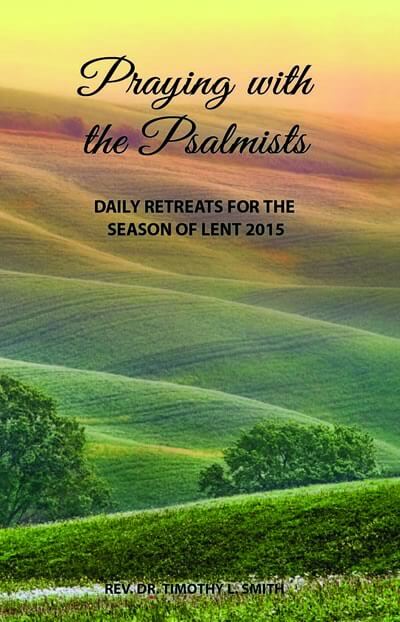 Here I Am Lord
Here I Am Lord
Sacrifice and offering you did not desire—
but my ears you have opened—
burnt offerings and sin offerings you did not require.
Then I said, “Here I am, I have come—
it is written about me in the scroll.
I desire to do your will, my God;
your law is within my heart.”
Psalm 40:6-8
Andraé Crouch, the “father of modern gospel music”, once asked God in song, “How can I say thanks for the things you have done for me? Things so undeserved yet you gave to prove your love for me.” (“My Tribute”) That is David’s question in this section of Psalm 40: how to say appropriate thanks. Earlier in the psalm David tells how God lifted him out of the mud and mire, set his feet on a rock, and gave him a firm place to stand. How does he say, “Thank you God!”?
In previous days David might have thought that a sacrifice or offering would be the way to say thanks to God, but now he thinks differently. Most pleasing to God would be for David to offer God a heart ready to do His will.
Although it might not be apparent in translation David has considered four kinds of sacrifices in these verses as a way of giving thanks to God: “Sacrifice…offering…burnt offerings…sin offerings.” These various forms of sacrifice prescribed in the Law of Moses encompass the whole sacrificial system that might be offered to God. But David has come to see that obedience to God is better than sacrifice offered to Him. Perhaps David is remembering what the prophet Samuel had said to a disobedient King Saul: “Does the LORD delight in burnt offerings and sacrifices as much as obeying the LORD? To obey is better than sacrifice, and to heed is better than the fat of rams” (I Samuel 15:22).
David says to God, “my ears you have opened.” The Hebrew can be translated literally, “ears you have dug out for me”, suggesting, as The Message renders it: “You’ve opened my ears so that I can listen.” God’s love has captured David’s heart and given to him the ability to understand and obey His Word. Like the prophet Isaiah (Isaiah 6:8), David presents himself to God, “Here I am”, signaling that he is ready to do God’s will, and have it written in his heart. This is what pleases God.
As the Lord’s anointed king, David is responsible to lead the people in keeping God’s Torah. The Law of Moses had commanded that when a king “takes the throne of his kingdom, he is to write for himself on a scroll a copy of this law…to be with him, and he is to read it all the days of his life” (Deuteronomy 17:18-19). With that personally copied scroll close at hand, David is ready to say, “Here I am, I have come – it is written about me in the scroll”; here it is written for me to obey.
The “greater son of David”, Jesus Christ, also offers His life to God in humble obedience. The New Testament Book of Hebrews puts the words of David’s psalm in Jesus’ mouth:
Therefore, when Christ came into the world, he said: “Sacrifice and offering you did not desire, but a body you prepared for me; with burnt offerings and sin offerings you were not pleased. Then I said, ‘Here I am – it is written about me in the scroll – I have come to do your will, my God.’ (Hebrews 10:5-7; note: quotation based on the Septuagint, the ancient Greek translation of the Old Testament.)
The best way to say thank you to God for all His goodness and mercy is to offer our lives to Him, to say, “Here I am”: “Therefore, I urge you, brothers and sisters, in view of God’s mercy, to offer your bodies as a living sacrifice, holy and pleasing to God-this is your true and proper worship” (Romans 12:1).
READ REFLECT RESPOND REST
RECORD (optional)


 Here I Am Lord
Here I Am Lord
